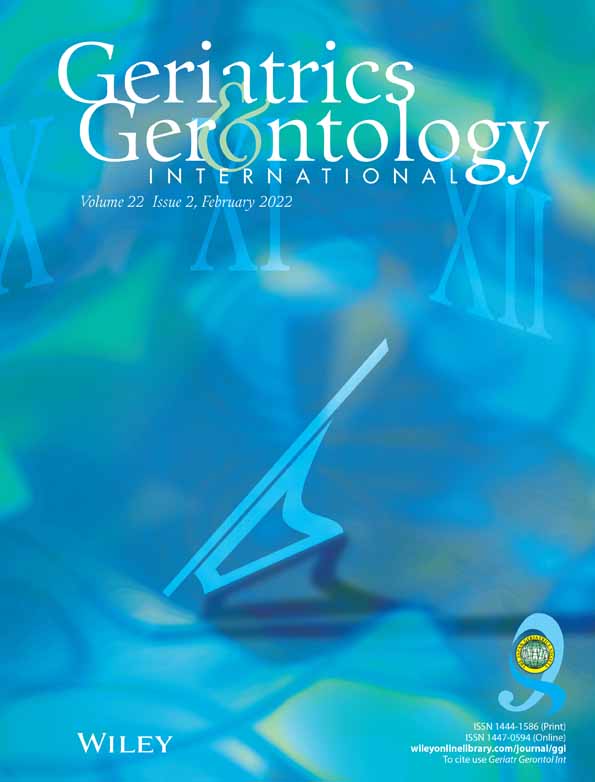Prescription drug survey of elderly patients with degenerative musculoskeletal disorders
Abstract
Aims
Elderly patients with musculoskeletal disorders are generally expected to receive many prescription drugs for non-musculoskeletal comorbidities and for alleviating chronic musculoskeletal pains. The aims of this study were to review the use of prescription drugs in elderly patients with elective surgeries for musculoskeletal disorders and to identify the factors associated with polypharmacy in elderly patients with musculoskeletal disorders.
Methods
We retrospectively collected the clinical data of patients aged ≥65 years who underwent knee arthroplasty, total hip arthroplasty, or spinal surgery for lumbar or cervical degenerative disorders at our institution. The following data were evaluated: age, body mass index, sex, surgical site, prescription drugs used, American Society of Anesthesiologists physical status grade, and medical history, including hypertension, hyperlipidemia, diabetes, stroke, malignancy, and smoking. Polypharmacy was defined as the use of six or more drugs.
Results
In the present study, 767 consecutive patients were evaluated retrospectively. The prevalence of polypharmacy was >50% in the elderly patients with musculoskeletal disorders. The mean numbers of total drugs and pain relief medications were significantly higher in the lumbar surgery group than in the other surgery groups. Multivariable analysis revealed that the factors associated with polypharmacy were lumbar surgery, hypertension, hyperlipidemia, diabetes, and malignancy.
Conclusions
This is the first study to cross-sectionally review the drugs prescribed to patients with degenerative musculoskeletal disorders. It clearly identified the factors associated with polypharmacy in elderly patients with degenerative musculoskeletal disorders. Particular attention should be paid to polypharmacy in elderly patients with lumbar degenerative disorders. Geriatr Gerontol Int 2022; 22: 121–126.
Open Research
Data availability statement
The data that support the findings of this study are available from the corresponding author upon reasonable request.




